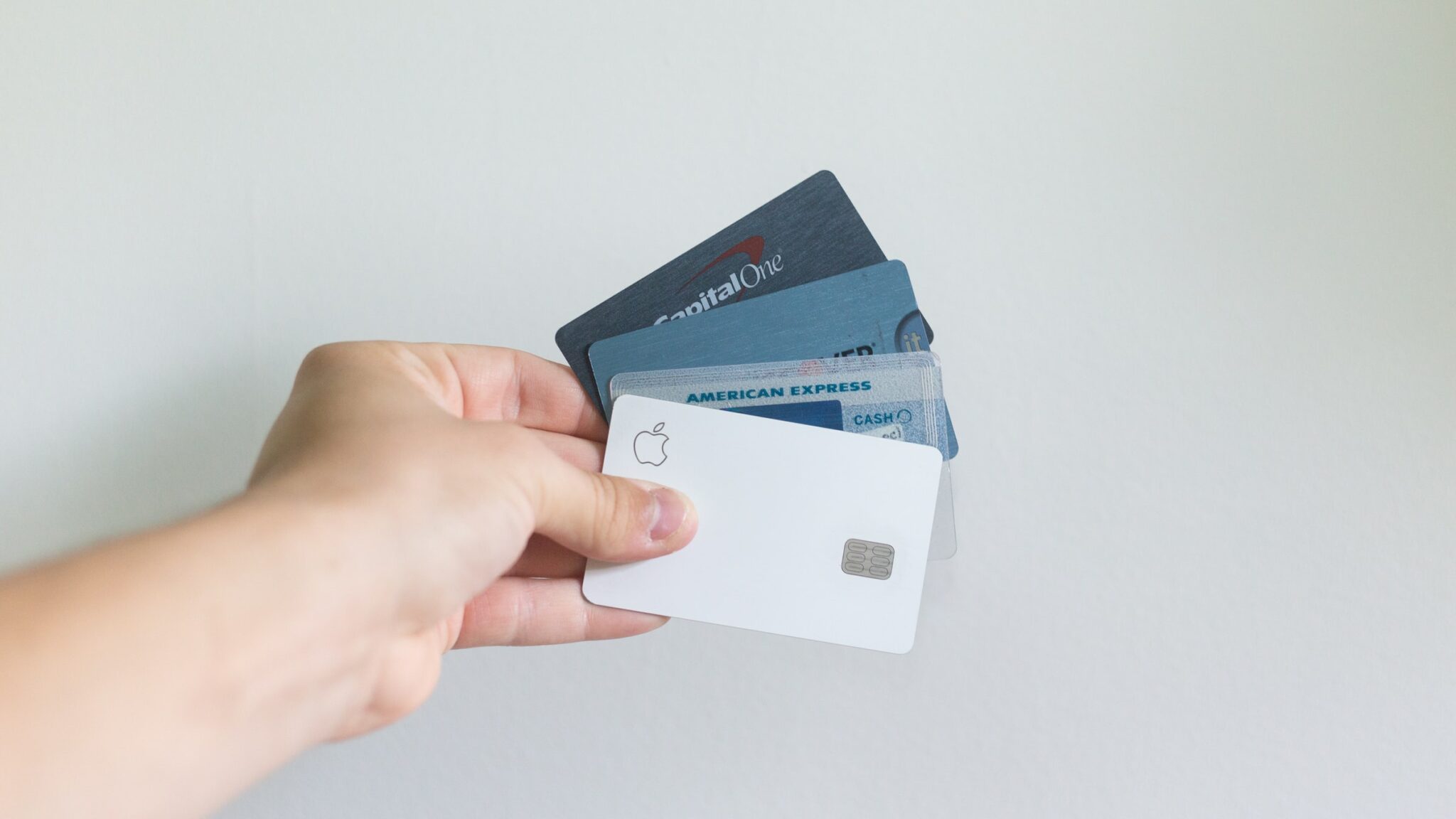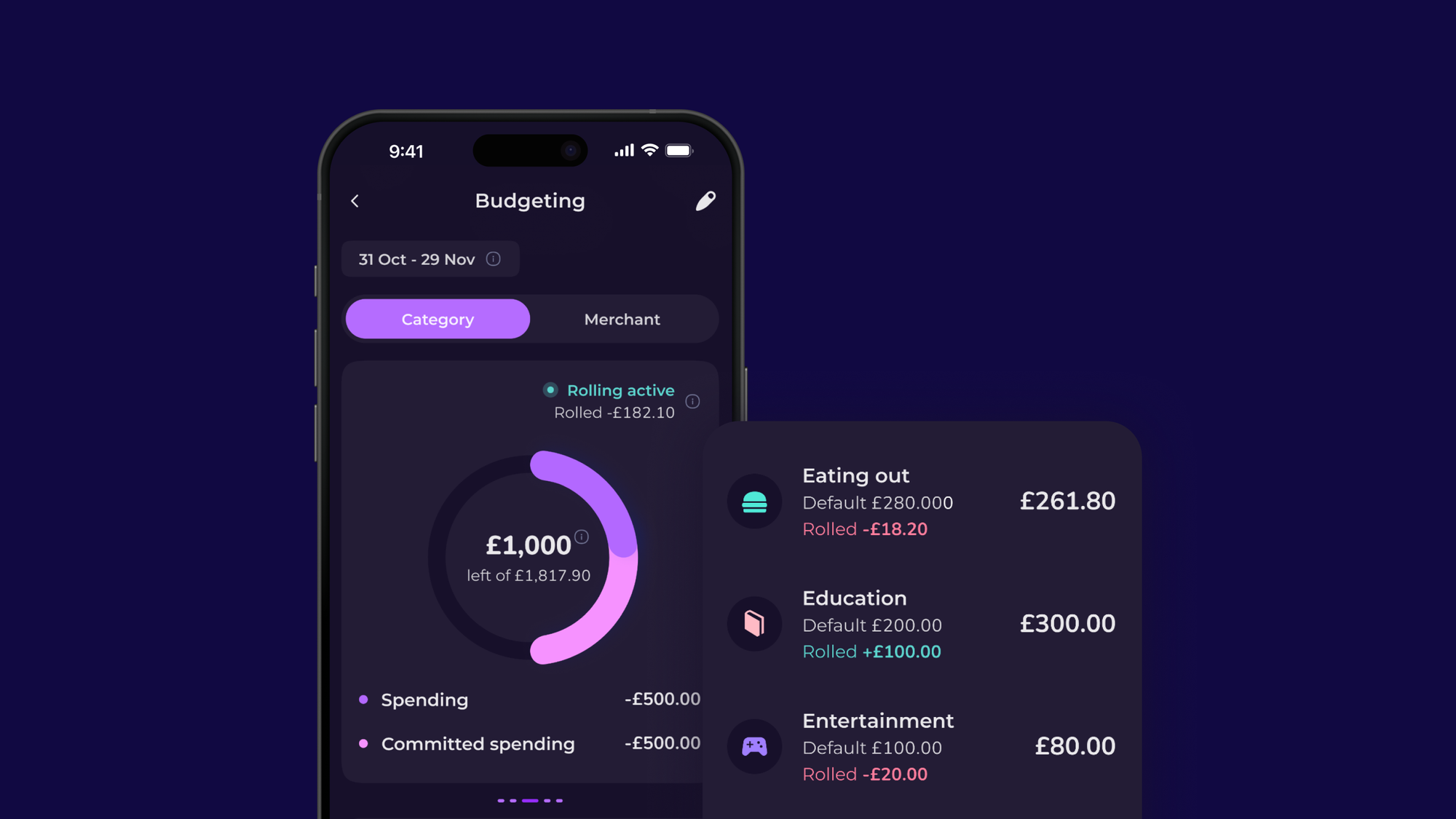FEATURED ARTICLE
Debt Consolidation Loans: What Are They?

Rebekah May
December 8, 2020 •4 min read
TABLE OF CONTENTS
What is debt consolidation?
Types of debt consolidation loans:
Is it a good idea to consolidate debt?
Does consolidating your debt impact your credit score?
How do I make sure I don’t take out another loan?
Summary
Debt is defined as a sum of money that is owed by one party to another. If you have large amounts of debt, or you're not managing debt repayments well, it can cause unnecessary complications and stress to your life.
Whether you have credit card debt, payday loans, overdraft charges, or outstanding household bills, we take a look at how consolidating your debt can help you manage your money a little better.
What is debt consolidation?
Keeping track of multiple debts can sometimes be quite overwhelming.
If you’re struggling to keep up with numerous repayments, consolidating your debts into one plan might be a good idea.
The idea behind debt consolidation is that you take out one new loan. You borrow enough money with this loan to pay off all your current debts, and instead, just owe money to one lender.
Having one lender makes it easier to manage your repayments. You might also find that this new loan has lower interest rates than your old loans, so you could also be saving money on your monthly repayments.
Types of debt consolidation loans:
There are a couple of different types of debt consolidation loans that you need to be aware of.
The first is a secured debt consolidation loan. This means that the loan is taken out against an asset, like your home. If you miss repayments with a secured debt consolidation loan, you run the risk of losing that asset (e.g. your home). This type of loan may be required if you owe a lot of money, or if you have a poor credit score.
Then there are unsecured debt consolidation loans. This is a type of loan that is not secured against an asset. If you miss repayments, you might not lose your home, but you will still face certain consequences.
It's important that you understand the difference between these loans. For more information on types of loans, click through to this Emma guide which explains different types of loans in more detail.
Is it a good idea to consolidate debt?
Consolidating your debts into one plan means you’ll only have one lender to pay. This makes managing your debt a whole lot easier. Debt consolidation loans also tend to come with lower interest rates, so you’ll also be saving on interest charges.
On the other hand, you’ll need to consider whether consolidating your debt will save you money in the long run.
Start by calculating how much debt you have across your different loans. Next, work out the total repayment amount of these debts (based on the interest rate and length of loan). There are calculators online that can help you do this.
Knowing this information will help you decide whether a debt consolidation loan is right for you. For example, consolidating your debts into one plan might mean you have bigger monthly payments, or might mean you have to pay the money back over a longer period of time. It's vital that you consider whether the debt consolidation repayments are affordable.
Look at your income and your spending habits to make sure that you can comfortably repay the loan each month. If you can, consolidating your debts may be the best option for gradually repaying your debts.
Does consolidating your debt impact your credit score?
If you manage to keep up to date with your monthly payments, having a debt consolidation loan can help you build your credit score. However, if the cost of the new loan means you’re not making the repayments, this will be reflected in your credit history.
How do I make sure I don’t take out another loan?
Debt consolidation loans are useful because they mean you only have one loan to look after.
Don’t decide to consolidate your loans and then take out a whole new loan. Instead, use the debt consolidation loan as an opportunity to get your finances back on track! Consider if there is anything you could be doing to manage your money a little better.
For example, can you reduce the temptation to spend money on your credit cards? (We’ve heard putting your credit card in the freezer does the job).
Setting yourself spending rules can also help. For example, if you can’t buy something without using your credit card, consider whether you should be buying it at all.
Creating a budget that helps you control your spending is also an effective way to reduce debt.
And starting an emergency fund means you’re less likely to need a loan in the future. If something goes wrong with your car, your home, your phone, you won’t need to take out a new loan because you’ll have the money saved already.
Summary
Debt consolidation loans can be a great tool for handling complicated debt situations. But, they’re only a good idea if your new loan completely clears all your old debts, and ends up saving you money in the long run.
If you’ve decided that debt consolidation is something you’d like to consider, visit the Borrow tab in Emma to compare loans. We’ll help you search the market, finding a loan that is just right for you.
You can also explore all the other ways we can help you manage your money. Like, setting a budget, cutting the costs of your household bills and spotting any unwanted subscriptions.
Have you had any success with debt consolidation loans? Or, has Emma helped you reduce your debts in any way? Get in touch through Twitter, Instagram, or the Emma Community!
You may also like
Check out these related blog posts for more tips
© 2025 Emma Technologies Ltd. All Rights Reserved.
Emma is registered and incorporated in England and Wales.
Emma Technologies Ltd is an appointed representative of RiskSave Technologies Ltd, which is authorised and regulated by the Financial Conduct Authority (FRN 775330).
Payment services (Non MIFID or Deposit related products) for Emma Technologies Ltd are provided by The Currency Cloud Limited. Registered in England No. 06323311. Registered Office: Stewardship Building 1st Floor, 12 Steward Street London E1 6FQ. The Currency Cloud Limited is authorised by the Financial Conduct Authority under the Electronic Money Regulations 2011 for the issuing of electronic money (FRN: 900199). For more detail on how your money is protected please see here. You can also find Currency Cloud's Terms of Use here.
Emma Technologies is an Introducer Appointed Representative of Quint Group Limited and not a lender. Quint Group Limited is authorised and regulated by the Financial Conduct Authority (Firm Reference Number 669450). Monevo Limited is an Appointed Representative of TransUnion International UK Limited. TransUnion is authorised and regulated by the Financial Conduct Authority (Firm Reference Number 737740). Emma Technologies introduces customers first to Quint Group Limited, as a licensed credit broker, who then refers on to Monevo Limited.
Emma is registered with the Financial Conduct Authority under the Payment Services Regulations 2017 for the provision of payment services.
Financial Conduct Authority Reg Nr: 794952.
Company Registration Number: 10578464.
Data Protection Registration Number: ZA241546.
All testimonials, reviews, opinions or case studies presented on our website may not be indicative of all customers. Results may vary and customers agree to proceed at their own risk.
Resources: Cancel subscriptions, Cashback offers, Who charged me, Rent Reporting, Budgeting, Investment universe, Emma vs Moneyhub.
Featured cashback offers: Samsung, SimplyCook, NordVPN, Audible, M&S Homeware.









